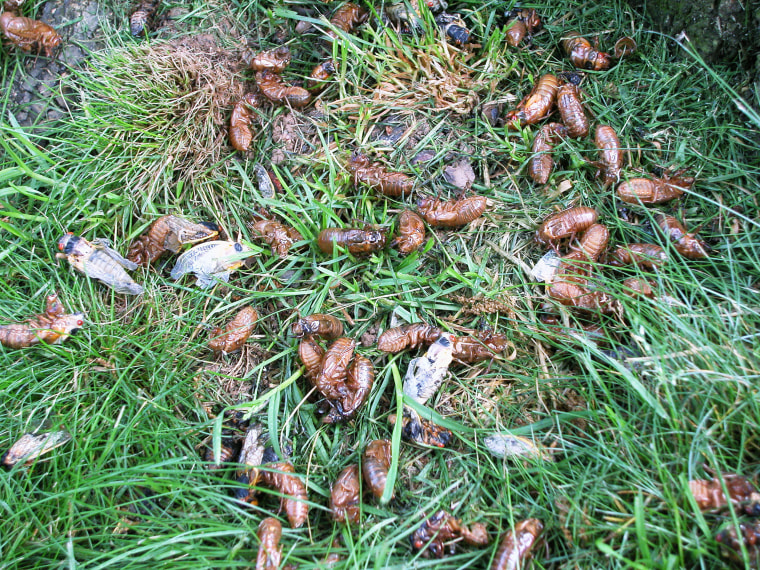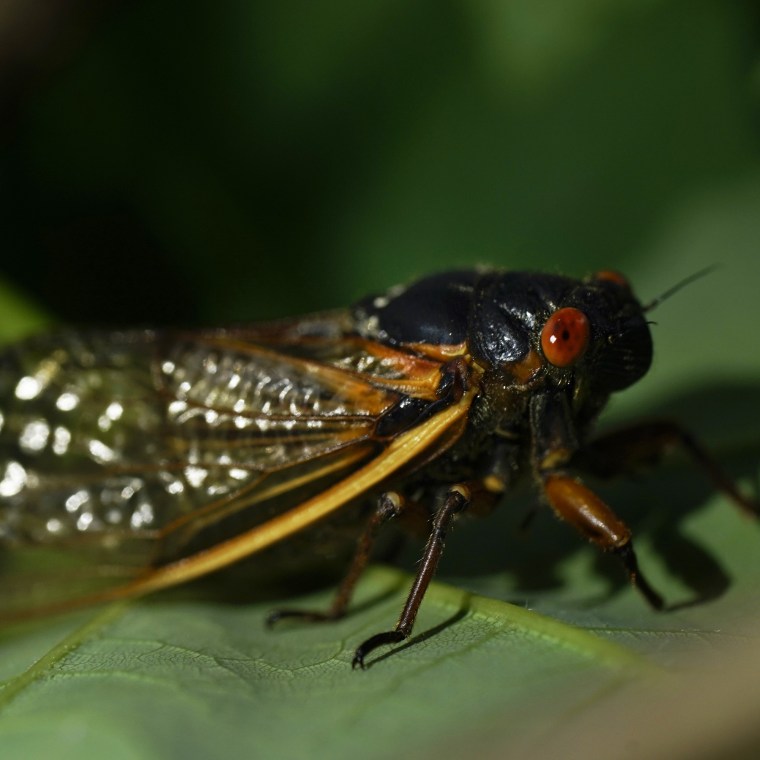They’re baaack!
Cicadas are beginning to emerge in the eastern United States after spending the past 17 years underground. They're part of Brood X, which last emerged in 2004.
They’re already above ground — and making a deafening racket — in parts of Georgia, Tennessee and North Carolina. Eventually, they may emerge as far west as Illinois and as far north as New York.
What are cicadas?
We know they’re noisy, and we know there are a lot of them, but what exactly are cicadas?
Contrary to common belief, cicadas are not grasshoppers or locusts. They belong to the same family as aphids and leafhoppers.
While they may creep some people out, cicadas are not dangerous. They don’t chew through crops, they are not poisonous, they don’t sting or bite and they are not known to carry disease, according to the University of Connecticut.

- Watch TODAY All Day! Get the best news, information and inspiration from TODAY, all day long.
- Sign up for the TODAY Newsletter!
Why do cicadas appear every 17 years?
But why do some cicadas, called periodical cicadas, only emerge every 17 years?
“We're not really sure,” says Dr. Michael Raupp, an entomologist at the University of Maryland. “We think they may have a tiny molecular clock somewhere in their tiny brains that basically they're counting off those 17 years underground.”
Why do cicadas make noise?
When they do come above ground, it’s mating time. Males try to attract females by making loud clicking sounds, produced by contracting a special muscle on their abdomen, according to Britannica.

“The cicadas are making that sound because it’s all about romance,” Raupp says. “This is the male cicada trying to convince that special someone that she should be the mother of his nymphs.”
A chorus of these cicada love songs can reach up to 100 decibels, or about the volume of a loud lawnmower.
The cicadas typically stay above ground for about two weeks. The females lay their eggs in trees, and when the eggs hatch, the larvae drop to the ground and bury themselves into the soil, not to be seen again for another 17 years.
The emergence of cicadas is certainly a sight — and a sound — to behold. While these insects may gross many people out, Raupp sees their appearance as a rare and fascinating event.
“Are cicadas disgusting? Well, to some they might be disgusting, but to me they’re beautiful,” he says. “Beautiful, vermillion eyes, a jet black body, wonderful orange wings and their chorus is going to be like nothing else on this planet.”
